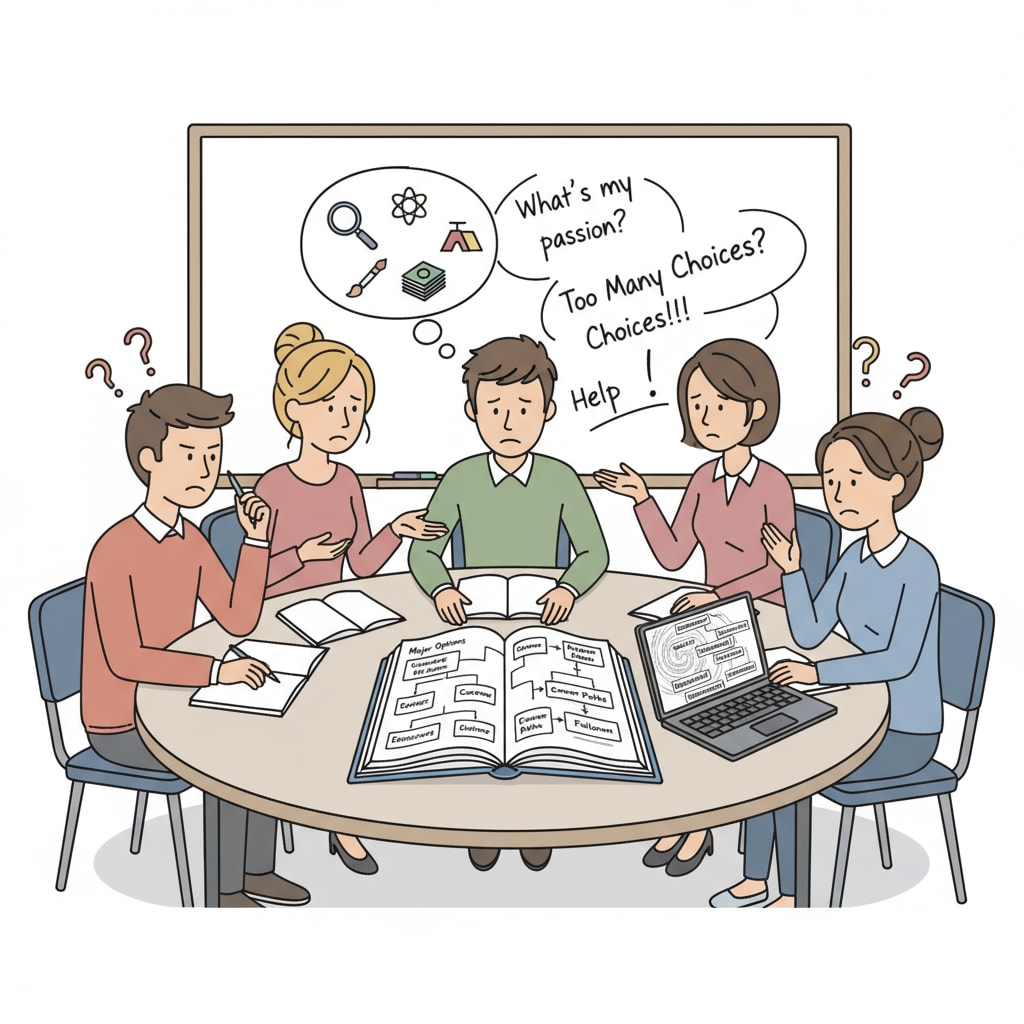College major selection, lack of interest, and social experience often intertwine to create a complex web of dilemmas for students. As they transition from K12 education to the vast world of higher learning, many find themselves at a crossroads, unsure of which path to take.

This confusion is particularly acute for those who lack a clear academic passion, yet are forced to make a significant decision that will shape their future.
The Struggles of Indecision
During the K12 education phase, students are often focused on achieving good grades and meeting academic requirements. As a result, they may not have had the opportunity to explore their true interests deeply. When it comes time to choose a college major, this lack of self-awareness can lead to indecision. For example, a student who has always excelled in math and science may feel pressured to choose a STEM major, even if they have no real passion for the subject. According to Education Data, a significant percentage of students change their majors within the first two years of college, indicating the initial uncertainty they face.

The Role of Social Experience
Social experience also plays a crucial role in college major selection. Many students look to their peers for guidance or inspiration. If their friends are choosing popular majors like business or computer science, they may feel compelled to follow suit, regardless of their own interests. In addition, campus visits and orientation events can provide a glimpse into different academic communities. However, these experiences may not always be enough to help students with a lack of academic enthusiasm find their true calling. As per NCES, social influence can significantly impact a student’s decision-making process regarding college majors.
The educational system also has its share of shortcomings in this regard. There is often a lack of comprehensive career counseling and interest exploration programs in schools. Students need more support in understanding their strengths, weaknesses, and passions. Without this guidance, they are more likely to make hasty decisions that may not align with their long-term goals.
To address these issues, schools and parents should encourage students to engage in extracurricular activities, internships, and volunteer work. These experiences can help students discover new interests and gain practical skills. For instance, a student who participates in a community service project related to environmental conservation may develop a passion for environmental science. Moreover, providing access to career mentors can offer valuable insights into different fields.
In conclusion, college major selection is a significant decision that can be especially challenging for students lacking academic enthusiasm. By recognizing the role of social experience and addressing the gaps in the educational system, we can help these students find their way and make choices that will lead to fulfilling academic and professional lives. College should be a time of exploration and growth, and with the right support, students can overcome their initial confusion and embrace their true passions.
Readability guidance: The article uses short paragraphs and lists to summarize key points. Each H2 section provides relevant details. The proportion of passive voice and long sentences is controlled, and transition words are used throughout for better flow.


